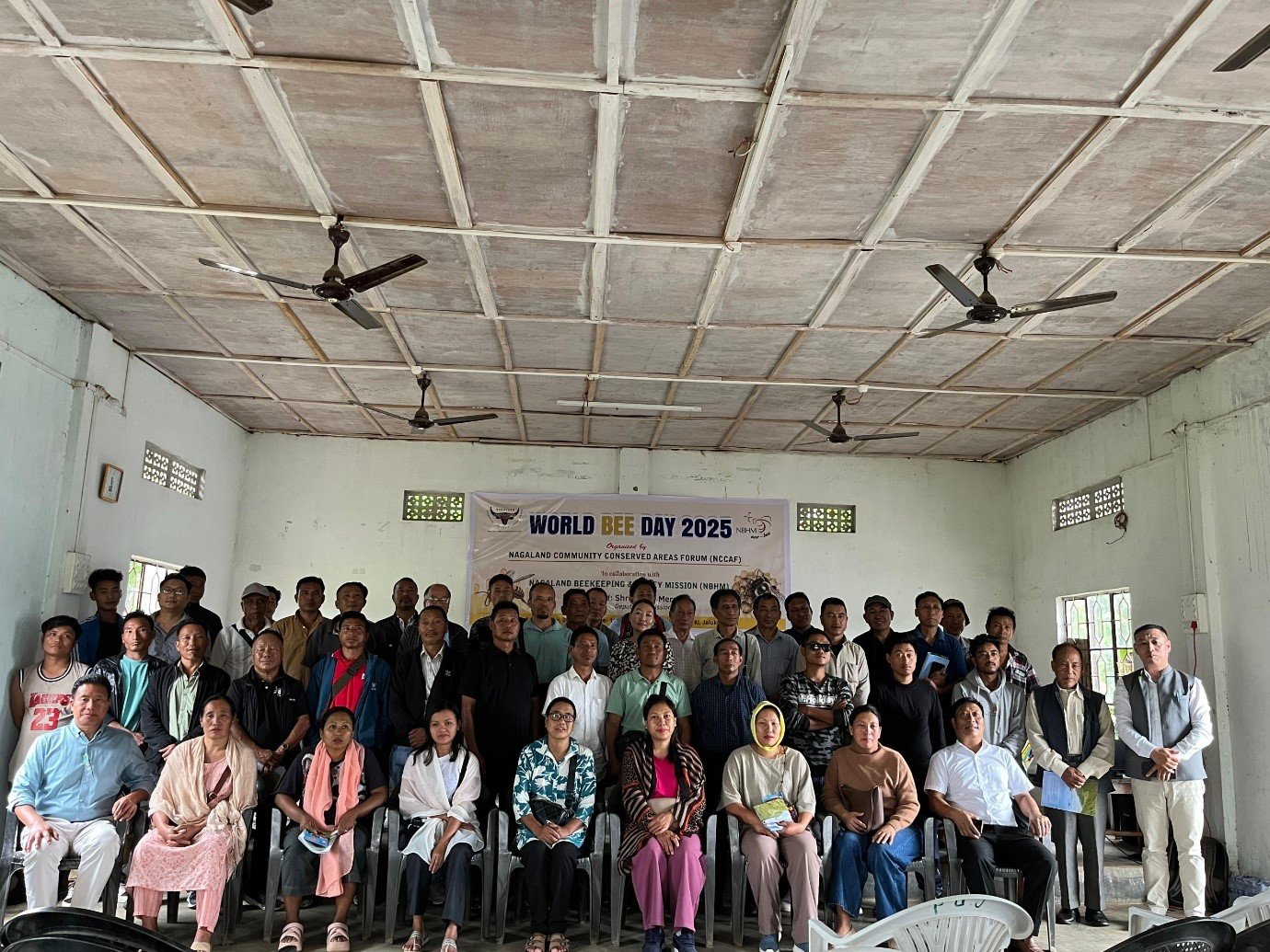The Nagaland Community Conserved Areas Forum (NCCAF), in collaboration with the Nagaland Beekeeping and Honey Mission (NBHM), marked World Bee Day 2025 with a vibrant and impactful event at Jalukie Town. The programme brought together village leaders from Peren District, and grassroots communities to champion bees as the lifeblood of biodiversity, conservation, food security, and sustainable rural livelihoods, informed a press release.
The event underscored Nagaland’s pioneering approach to apiculture—positioning it as a bridge between ecological conservation and inclusive economic development—while sending a clarion call to protect pollinators amid escalating global threats.
The first session was chaired by Seve Vadeo, Secretary of NCCAF, the session began with an invocation by Rev. Kuzierang Thou, Former State Chaplain, followed by a brief historical overview of NCCAF’s conservation journey by Chairman Heirang Lunglang.
The keynote address was delivered by Engineer Khuvozoyi Vese, Deputy Team Leader of NBHM who framed bees as “architects of life on Earth.” Citing Albert Einstein’s forewarning on pollinator extinction, Vese stressed that bee collapse would signal ecosystem failure. He noted that bees pollinate 90 percent of the world’s flowering plants and 75 percent of global food crops—essential to both biodiversity and nutritional security.
Vese highlighted Nagaland’s unique ecological wealth, with 13,500 sq. km of bee-forage area and native pollinators like Apis cerana and Tetragonula, while urging immediate action against threats such as habitat degradation, pesticide use, and climate change. “Bees are bio-indicators,” he said. “Their decline reflects our environmental crisis.”
Post-lunch, Setsachem Sangtam, Treasurer of NCCAF, facilitated the second session, which delved into practical and policy-level strategies for scaling up apiculture.
Download Nagaland Tribune app on Google Play

Bokali A. Chikhe, Team Member of NBHM, presented on the vast potential of beekeeping in Nagaland. With current annual honey production at 440 metric tons (₹39.6 crore), she noted that the state could scale up to 30,000 metric tons of honey and 50 metric tons of beeswax—potentially injecting ₹750 crore into the rural economy. Beekeeping, she emphasized, is uniquely inclusive—requiring little land or investment and accessible to women, youth, and landless farmers.
Chikhe also linked apiculture to ecosystem health, pointing to bees’ role in pollinating wild flora and supporting agroforestry systems. She highlighted initiatives such as “Eco-Api Villages,” which integrate apiculture with organic farming, fisheries, and terrace agriculture to create climate-resilient landscapes. However, challenges such as market volatility, high organic certification costs, and unsustainable wild honey harvesting practices persist. In response, NBHM is training over 22,000 beekeepers in scientific methods, promoting eco-friendly hive materials through afforestation drives, and strengthening local value chains through Village Beekeeping Committees (VBKCs) and women’s self-help groups.
The Special Guest, Hiazu Meru, Deputy Commissioner, Peren, reinforced the vital link between pollinator protection and Nagaland’s vision for organic agriculture. “Bees are the backbone of chemical-free farming,” he said. “Their protection ensures both ecological balance and sustainable incomes.”
Tokugha Sumi, Vice Chairman of NCCAF, called for the revival of traditional ecological wisdom and forest stewardship. World Bee Day 2025 served as a powerful reminder: bees are not just honey-makers—they are guardians of life, biodiversity, and food systems. By protecting them, Nagaland safeguards its forests, communities, and future generations.

